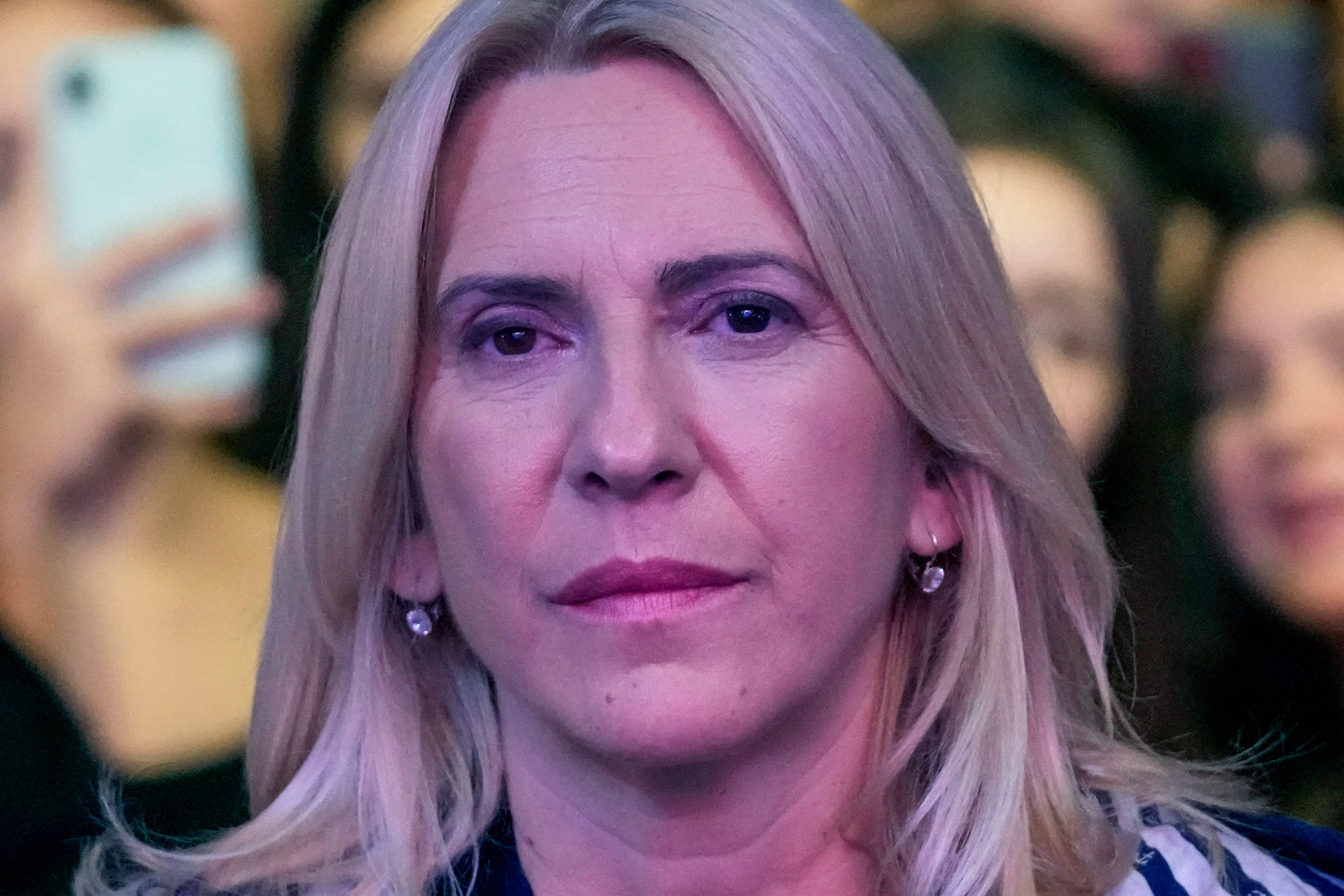4 separatist Bosnian Serb leaders are sanctioned by US Treasury for undermining a 1995 peace deal
The U.S. has imposed sanctions on four ranking Bosnian Serb officials for undermining a 1995 peace agreement that ended a war that left more than 100,000 dead and millions homeless

The U.S. on Monday imposed sanctions on four ranking Bosnian Serb officials for undermining a 1995 peace agreement that ended a war that left more than 100,000 dead and millions homeless.
The four officials sanctioned by the U.S. Treasury include Zeljka Cvijanovic, a Serb member of the tripartite collective Bosnian presidency, as well as the prime minister of the Serb entity in Bosnia, Radovan Viskovic.
The four are alleged to have taken part in drafting a law that U.S. and other international officials say undermines the unity of Bosnia by ignoring the decisions of the country’s constitutional court.
The Bosnian Serb parliament has passed the law to not recognize or implement any decisions by Bosnia’s multi-ethnic Constitutional Court.
“This action threatens the stability, sovereignty, and territorial integrity of Bosnia and Herzegovina and the hard-won peace underpinned by the Dayton Peace Agreement,” said Under Secretary of the Treasury for Terrorism and Financial Intelligence Brian E. Nelson. “This behavior further threatens the country’s future trajectory and successful integration into Euro-Atlantic institutions.”
The Bosnian War started in 1992, pitting mostly Muslim Bosniaks, Serbs, and Croats against each other. It ended with the U.S.-sponsored Dayton accords that created two regions, the Republika Srpska and the Bosniak-Croat Federation.
The Bosnian Serb ruling party, SNSD, said that the latest U.S. sanctions were “shameful” and “hypocritical” and would not “stop us from doing our job.”
The pro-Russian Bosnian Serb leader, Milorad Dodik, has openly been striving to separate Bosnian Serb territories from the rest of Bosnia and join them with neighboring Serbia.
Because of that, he was also sanctioned by the U.S., in 2017.
On Monday, the U.S Treasury said that “as a result of today’s action, all property and interests in property of the designated persons described above that are in the United States or in the possession or control of U.S. persons are blocked and must be reported.”
The U.S. recently also imposed sanctions on the pro-Russian head of Serbia's security agency, Aleksandar Vulin, accusing him of involvement in illegal arms shipments, drug trafficking and misuse of public office.
There are widespread fears that Serbia, an ally of Russia, could inflame tensions in the Balkans to divert at least some of the world attention from the war in Ukraine.
Bookmark popover
Removed from bookmarks